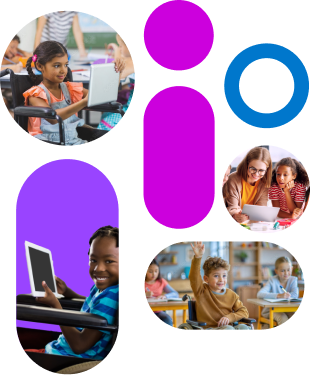GAAD Cofounder Reflects on State of Digital Access and Inclusion
Joe Devon discusses the viral success of Global Accessibility Awareness Day (GAAD), the launch of the GAAD Foundation, and why all Fortune 500 CEOs should take the GAAD Pledge

On May 19, people around the world celebrated Global Accessibility Awareness Day. And while it’s important to have a day dedicated to increasing digital inclusion, we agree with GAAD cofounder, Joe Devon, that accessibility needs a spotlight all year long.
In 2012, Joe, a serial entrepreneur and cofounder of Diamond, and Jennison Asuncion, LinkedIn’s Head of Accessibility Engineering Evangelism, launched Global Accessibility Awareness Day (GAAD). Celebrated on the third Thursday of May each year, the purpose of GAAD is to get everyone talking, thinking, and learning about digital access and inclusion and the one billion people with disabilities/impairments.
In recognition of the eleventh anniversary of GAAD, Joe spoke to Benetech employees about his involvement with GAAD, the GAAD Foundation, the GAAD Pledge, and the future of accessibility.
Accessibility Begins at Home
“GAAD started because of my dad. He was a genius who spoke ten languages and survived the concentration camps,” explains Joe. “It was hard for me to watch him get older and struggle with things like technology. He started to lose his eyesight, so something as simple as going to the bank would take all day. Telephone banking was an option, but his hearing wasn’t good, so online banking should have been the best solution to keep my dad independent. However, the bank changed the colors on their website and made it inaccessible.”
That experience inspired Joe to write a blog proposing a day for developers and designers involved in building digital products. “I wanted people to become aware that the way people build a product impacts the way people with disabilities are able to interact with it. If we do it wrong, we’re locking people out and removing their ability to be independent,” he says. While Joe liked the idea and hoped it would it happen, he was dubious that anything would come of it.
GAAD Goes Viral
Much to his surprise, the idea went viral the first year. By the second year, GAAD was getting a tweet a minute, and the reach hit 212 million. This year, GAAD was featured as the Google Doodle and on the Wikipedia front page, and it also received recognition from Apple, Microsoft, and Netflix.
“One thing that I was worried about, though, was that everyone would pat themselves on the back for what little they’ve done for accessibility, and then pay no attention to it,” said Joe. His worry was confirmed by a Twitter account called the Blind Onion, which is a take-off on The Onion’s satirical site but created by and for the blind community. One year they tweeted: “Now that Global Accessibility Awareness Day is over, we look forward to 364 days of global accessibility oblivion.”
Joe’s response to keep accessibility an ongoing priority was to launch the State of Accessibility Report in 2019. “WebAIM evaluated one million home pages and found widespread accessibility issues. Fortunately, since then, we’ve been seeing significant improvement, particularly with the big tech companies.”
GAAD Foundation Increases Momentum
Another way to increase momentum and support for accessibility is through the GAAD Foundation. Launched in 2021, it is a nonprofit organization whose mission is to disrupt the culture of technology and digital product development to include accessibility as a core requirement. Its vision is for accessibility to be built into the product development lifecycle for technology and digital products.
One of the initiatives of the GAAD Foundation is the GAAD Pledge that invites companies to take public, tangible actions to make accessibility a core value of their frameworks and digital products. One group that is leading the charge is The Valuable 500 – a global business collective of 500 CEOs and their companies, innovating together for digital inclusion. Movements like this make Joe feel optimistic about large-scale change.
Looking Ahead
Accessibility doesn’t just affect people with disabilities; it affects everyone as we age. “A third of the population is over 50, and that’s a huge market,” says Joe. “Your eyesight and hearing start to diminish and you benefit from features like automated captions on Zoom, high contrast displays, or large font on your phone.”
Joe also stressed the important role that government policy can play. “The Department of Justice recently issued guidelines for businesses that the Americans with Disabilities Act applies to digital products, and if a company has an online presence like an ecommerce site, it needs to be accessible,” he explains. “The progress is slow, but it’s moving forward.”
Learn more about GAAD, its initiatives, and ways you can participate.
Benetech supports accessibility in all its forms and thanks Joe for sharing his thoughts and expertise.
